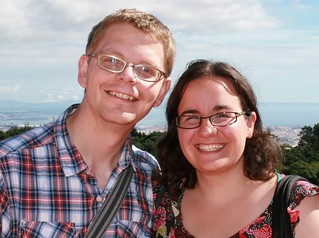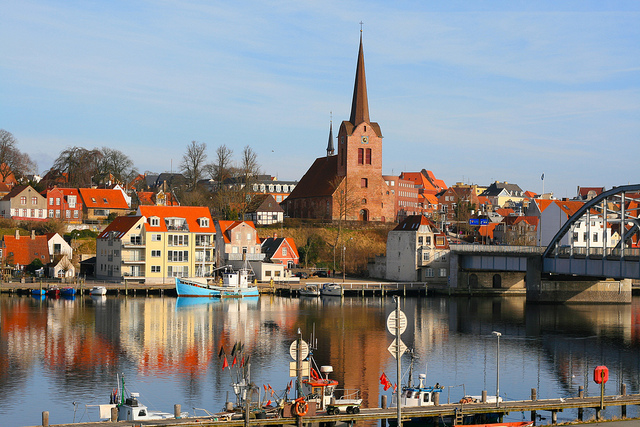Culture, food, events and life on Als, Denmark
Recent Posts
- Restaurant Alsik
- Taking the Danish Indfødsretsprøve
- Brunch at Hotel Baltic
- Besøg Babyer: Babies Visiting Older People
- Spices of Dansborg: Indian take-away food in Sønderborg
- Where to go sledding in Sønderborg
- Det Sønderjyske Køkken
- Baby Activities in Sønderborg: An update
- Sønderborghus for Children
- Floorball: For Women
- Review @ Cafe’en at Sønderborghus
- Review: Cafe Figo
- Torve-Hallen, South European Food
- Ristorante Da Nico – Fast pizza, good food
- The Danish mortgage system and the negative interest rates
- Kebab Town Opens in Borgen
- Castillo & Co: Revisited
- Saigon Sandwich: Vietnam comes to Sønderborg
- Pub Quiz at Penny Lane, Sønderborg
- Jens Funder-Nielsen: The H.C. Andersen Artist
Things-to-do Counter
80/99
See how we are progressing in our challenge of finding and doing 99 things in Sonderborg.We are Michael and Ann

We write this blog as we explore our new hometown and region.
This blog is our opinions and is not funded by any public or private company. Read more
Archives
- October 2019
- November 2018
- May 2018
- March 2018
- February 2018
- January 2018
- January 2017
- November 2016
- October 2016
- July 2016
- June 2016
- May 2016
- April 2016
- January 2016
- December 2015
- November 2015
- September 2015
- August 2015
- July 2015
- June 2015
- May 2015
- April 2015
- March 2015
- February 2015
- January 2015
- December 2014
- November 2014
- October 2014
- September 2014
- August 2014
- July 2014
- June 2014
- May 2014
- April 2014
- March 2014
- February 2014
- November 2013
- October 2013
- September 2013
- August 2013
- July 2013
- June 2013
- May 2013
- April 2013
- March 2013
- February 2013
- January 2013
- December 2012
- November 2012
- October 2012
- September 2012
- August 2012
- July 2012
- June 2012
- May 2012
- April 2012
- March 2012
- February 2012
- January 2012
- December 2011
- November 2011
- October 2011
Tags
99 things to do
99things
1864
als
alsion
boats
buffet
castle
children
christmas
club
concert
culture
cycling
danish
Denmark
dinner
dybbol
European Capital of Culture
event
festival
fish
flensburg
food
gehry
guestpost
harbour
history
live
London
Malta
Moving
museum
music
outdoors
restaurant
review
slot
Sonderborg
sonderborghus
sport
things to do
train
video
weather
Culture, food, events and life on Als, Denmark
Recent Posts
- Restaurant Alsik
- Taking the Danish Indfødsretsprøve
- Brunch at Hotel Baltic
- Besøg Babyer: Babies Visiting Older People
- Spices of Dansborg: Indian take-away food in Sønderborg
- Where to go sledding in Sønderborg
- Det Sønderjyske Køkken
- Baby Activities in Sønderborg: An update
- Sønderborghus for Children
- Floorball: For Women
- Review @ Cafe’en at Sønderborghus
- Review: Cafe Figo
- Torve-Hallen, South European Food
- Ristorante Da Nico – Fast pizza, good food
- The Danish mortgage system and the negative interest rates
- Kebab Town Opens in Borgen
- Castillo & Co: Revisited
- Saigon Sandwich: Vietnam comes to Sønderborg
- Pub Quiz at Penny Lane, Sønderborg
- Jens Funder-Nielsen: The H.C. Andersen Artist
Things-to-do Counter
80/99
See how we are progressing in our challenge of finding and doing 99 things in Sonderborg.We are Michael and Ann

We write this blog as we explore our new hometown and region.
This blog is our opinions and is not funded by any public or private company. Read more
Archives
- October 2019
- November 2018
- May 2018
- March 2018
- February 2018
- January 2018
- January 2017
- November 2016
- October 2016
- July 2016
- June 2016
- May 2016
- April 2016
- January 2016
- December 2015
- November 2015
- September 2015
- August 2015
- July 2015
- June 2015
- May 2015
- April 2015
- March 2015
- February 2015
- January 2015
- December 2014
- November 2014
- October 2014
- September 2014
- August 2014
- July 2014
- June 2014
- May 2014
- April 2014
- March 2014
- February 2014
- November 2013
- October 2013
- September 2013
- August 2013
- July 2013
- June 2013
- May 2013
- April 2013
- March 2013
- February 2013
- January 2013
- December 2012
- November 2012
- October 2012
- September 2012
- August 2012
- July 2012
- June 2012
- May 2012
- April 2012
- March 2012
- February 2012
- January 2012
- December 2011
- November 2011
- October 2011
Recent Comments
- Mimi on Getting around Sonderborg with public transport
- Marcos on Accommodation in Sønderborg
- Eric Sheldon on Danskhed: What is Danishness?
- Pou on Getting around Sonderborg with public transport
- Photo Story: Storm Babet brings strong winds and flooding to Denmark – THE FLENSBURG FILES on Flooding in Sonderborg
Tags
99 things to do
99things
1864
als
alsion
boats
buffet
castle
children
christmas
club
concert
culture
cycling
danish
Denmark
dinner
dybbol
European Capital of Culture
event
festival
fish
flensburg
food
gehry
guestpost
harbour
history
live
London
Malta
Moving
museum
music
outdoors
restaurant
review
slot
Sonderborg
sonderborghus
sport
things to do
train
video
weather

Recent Comments